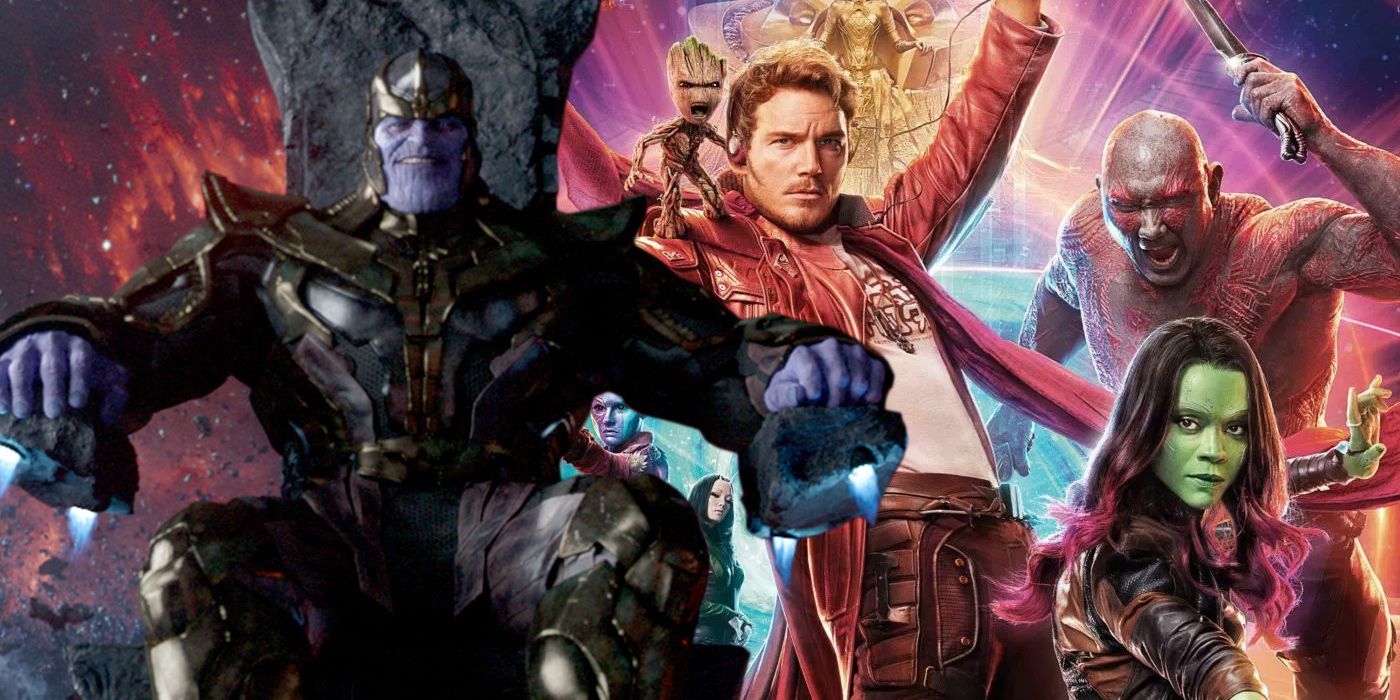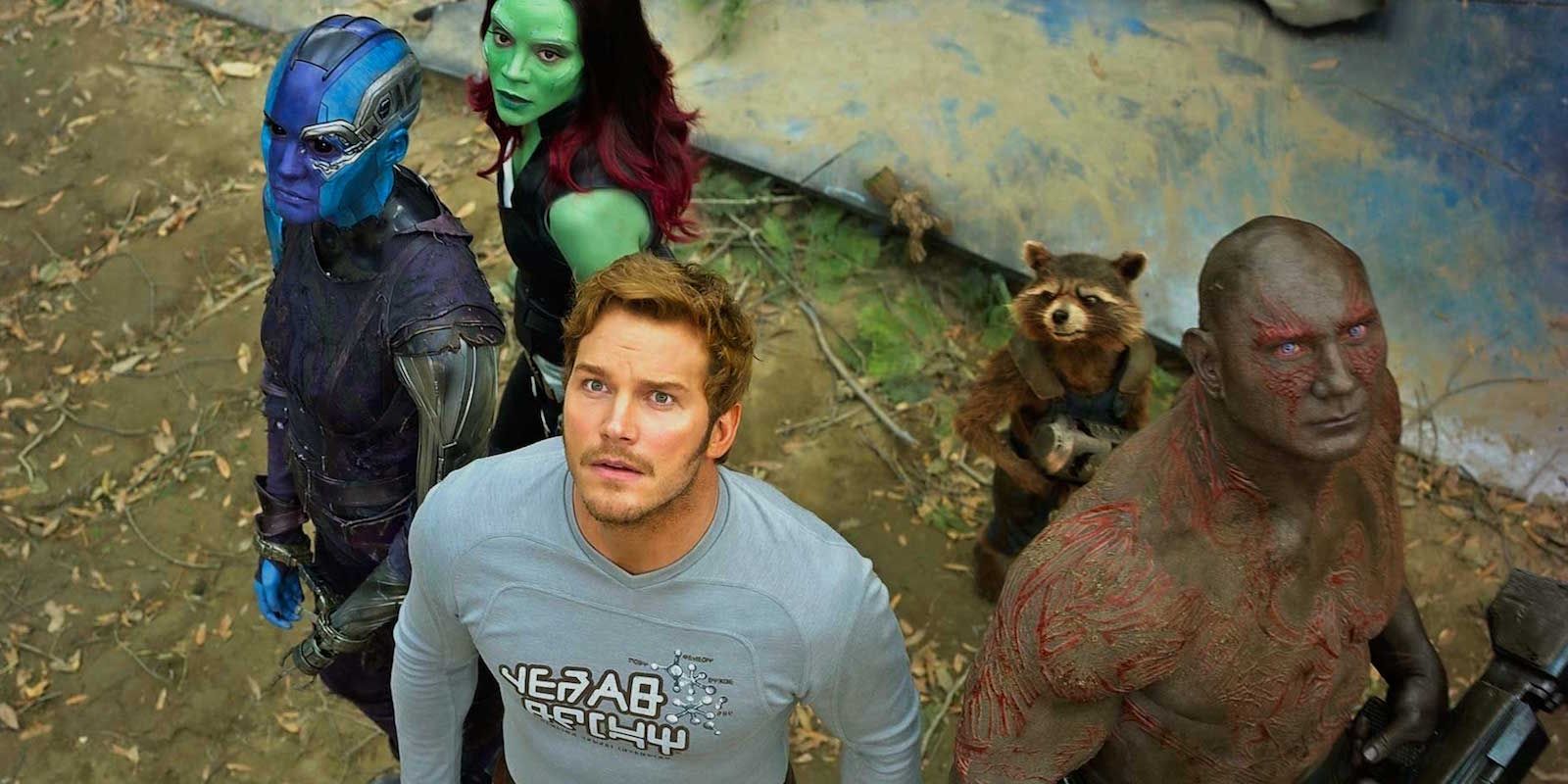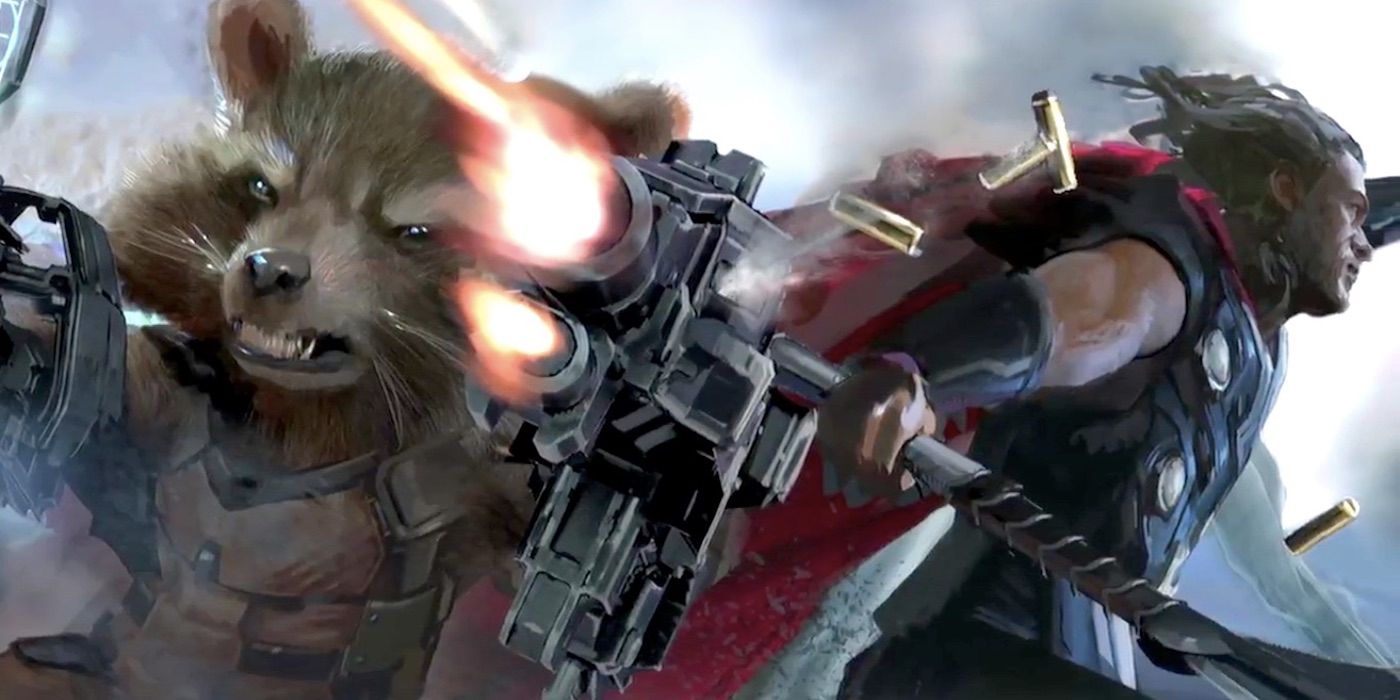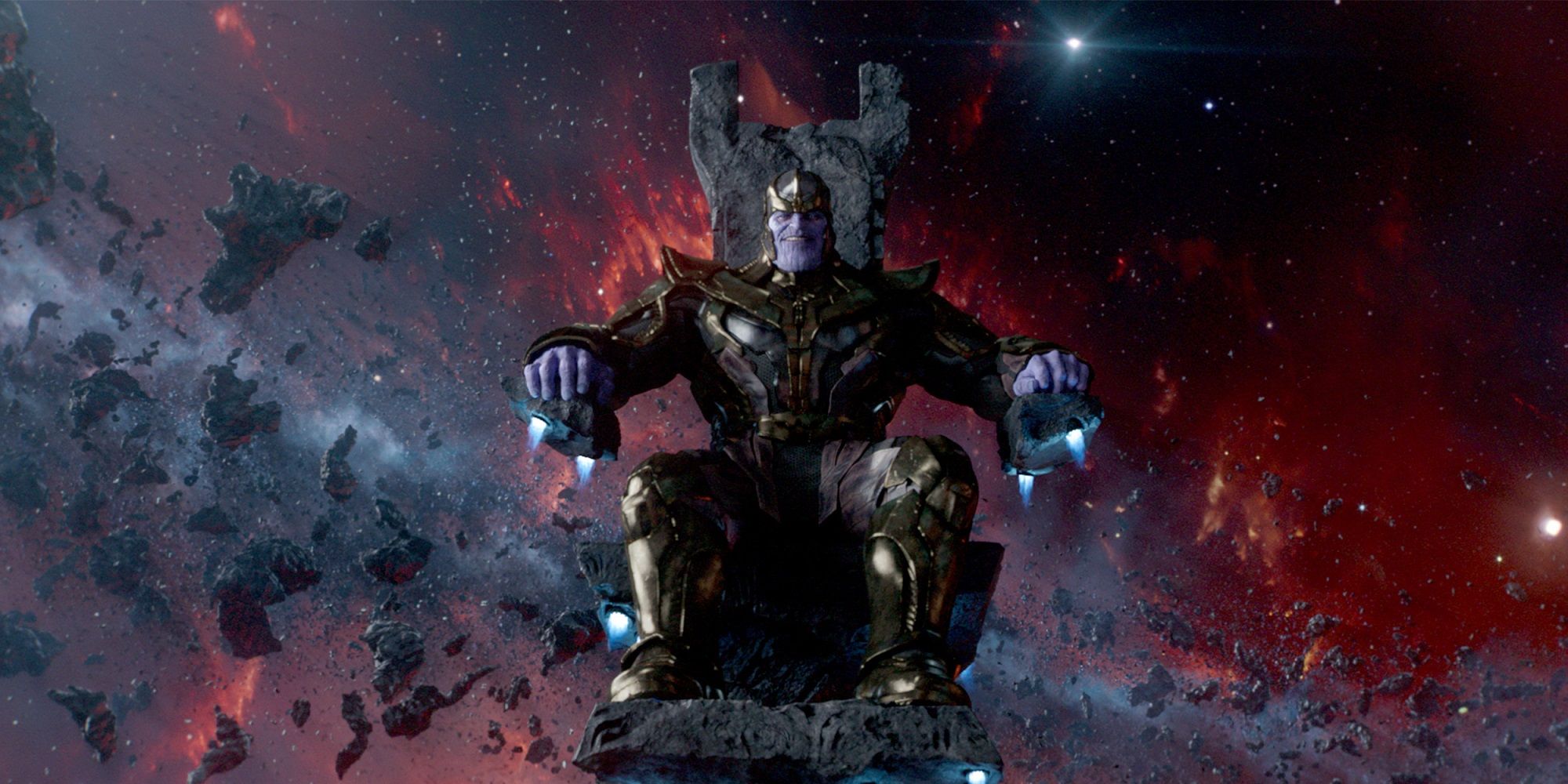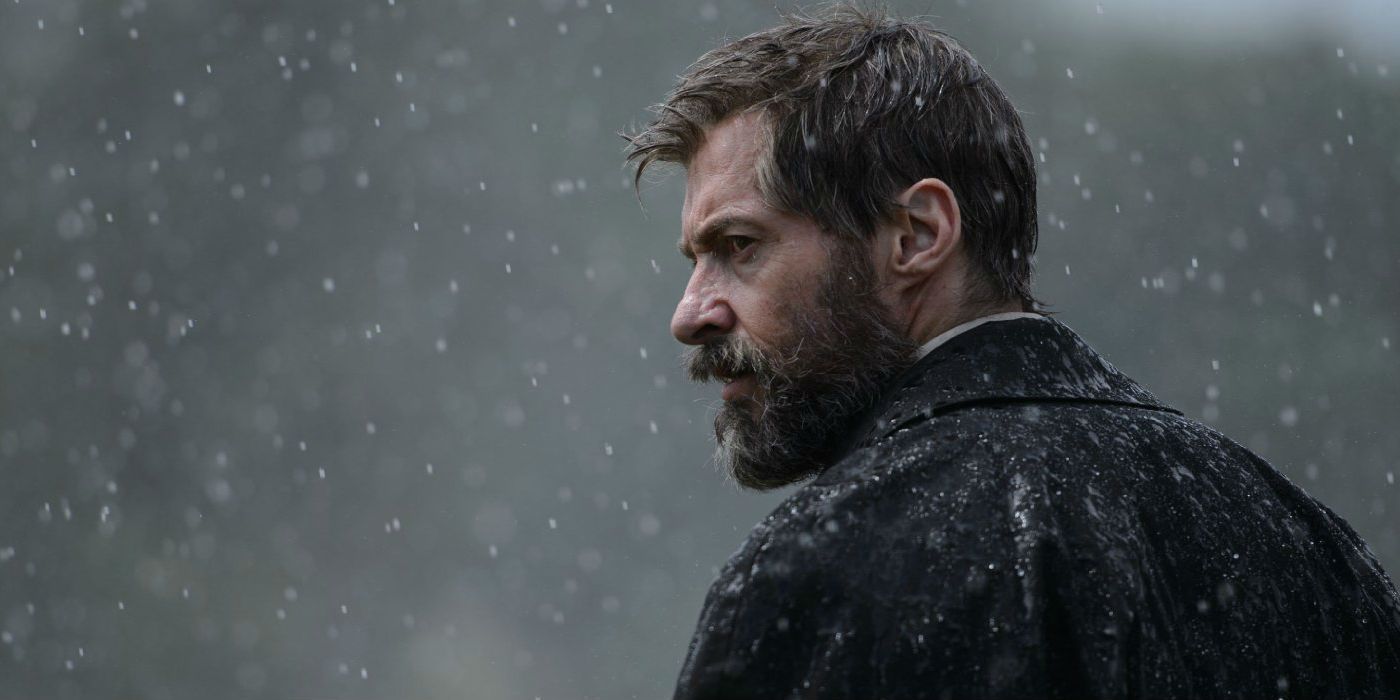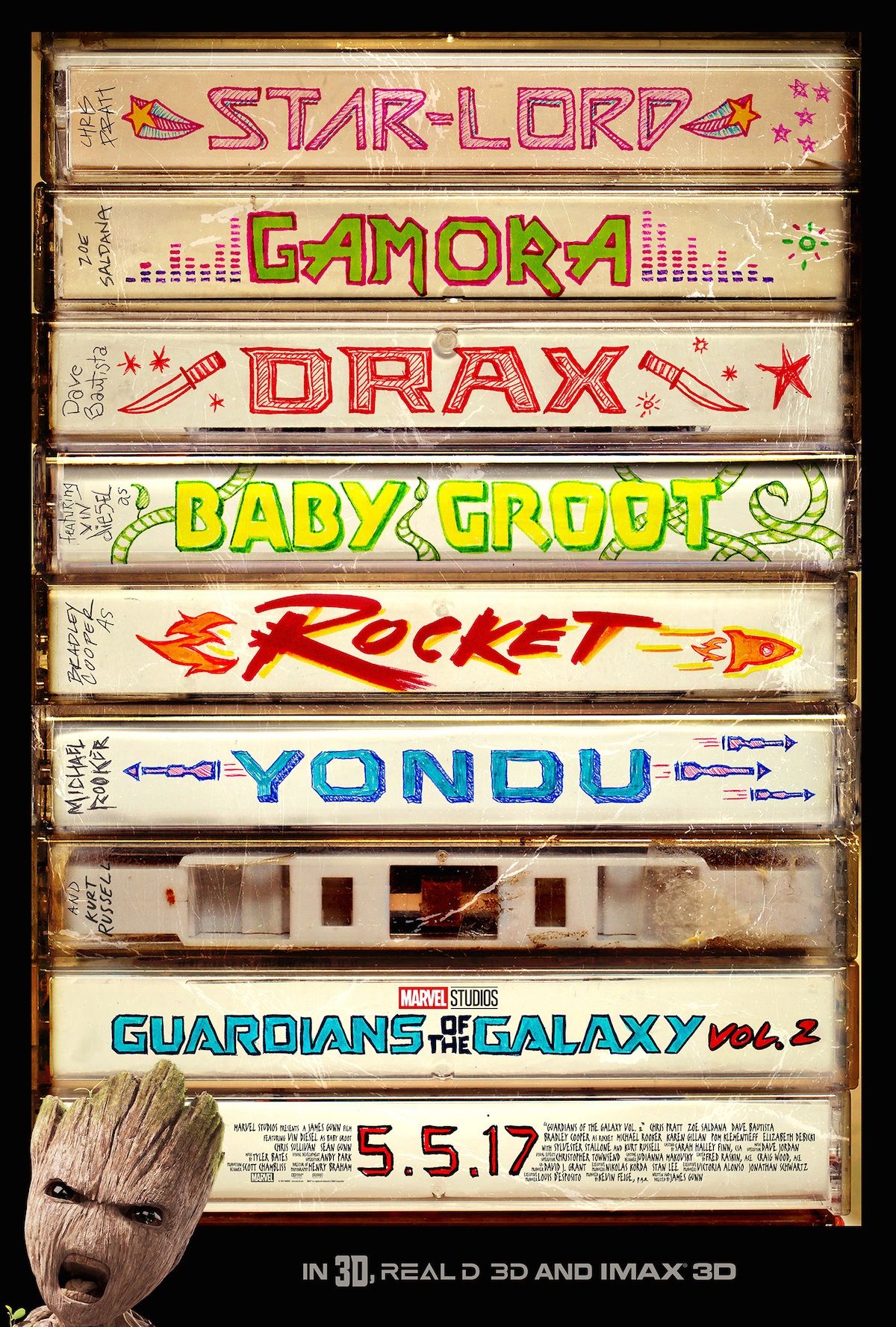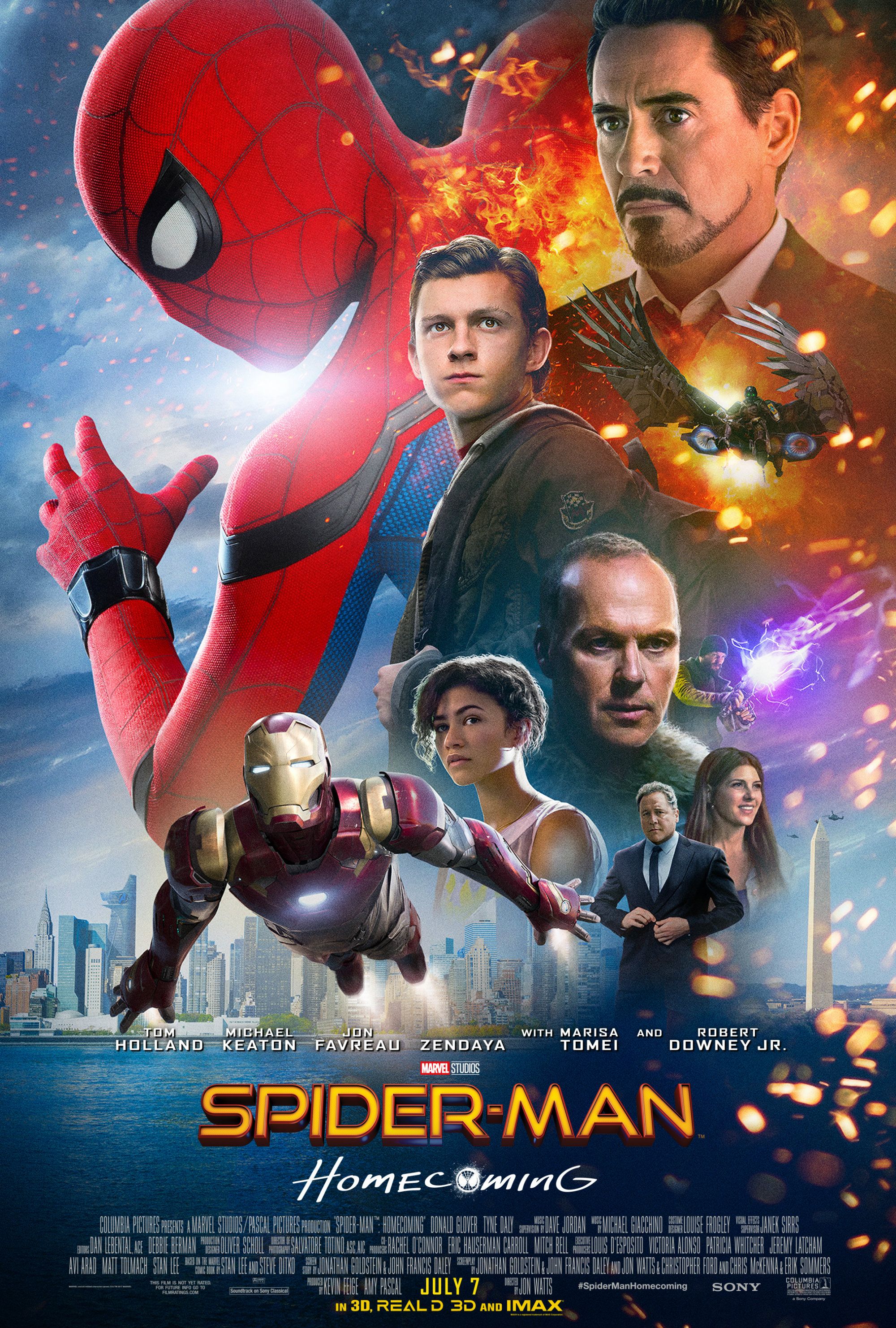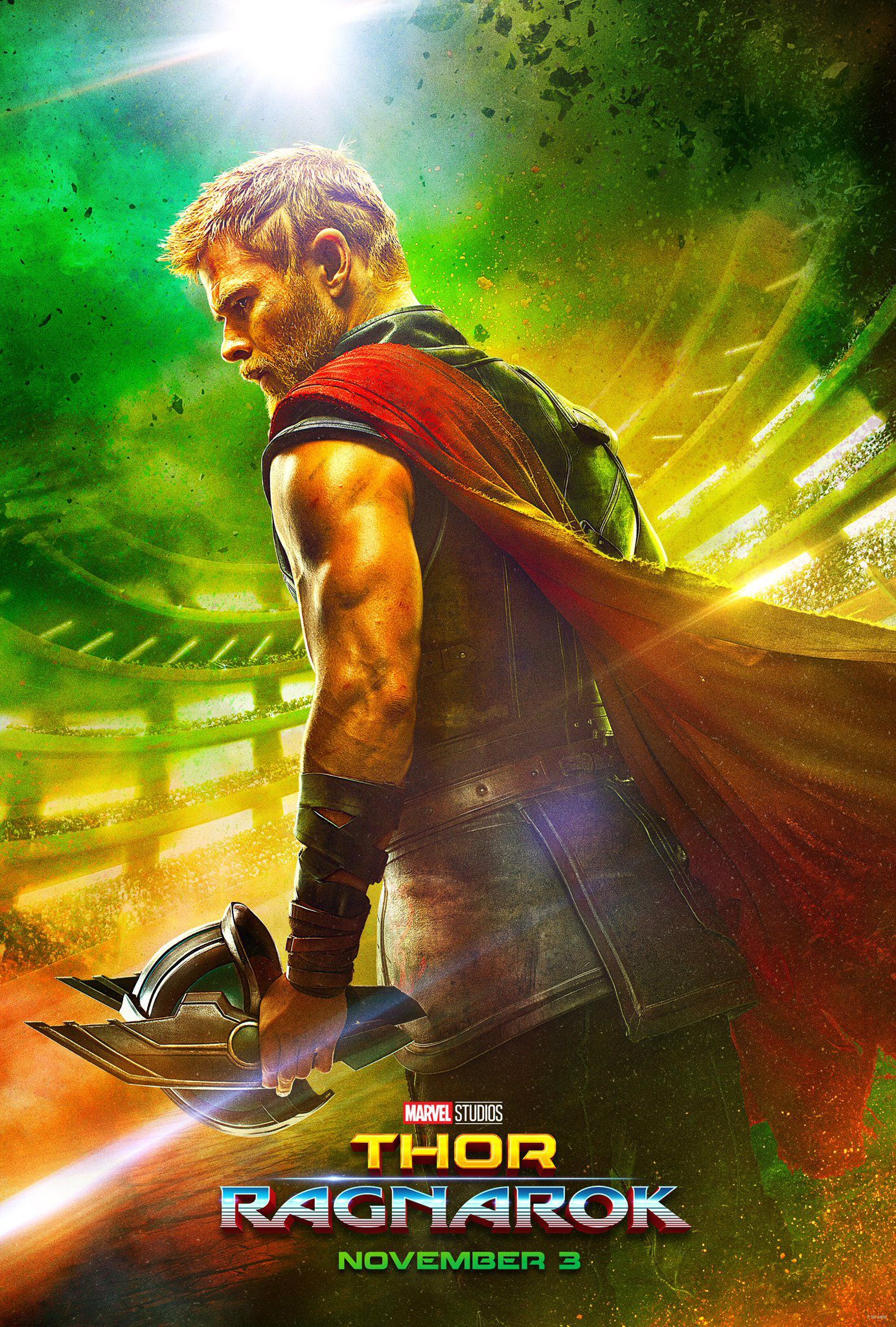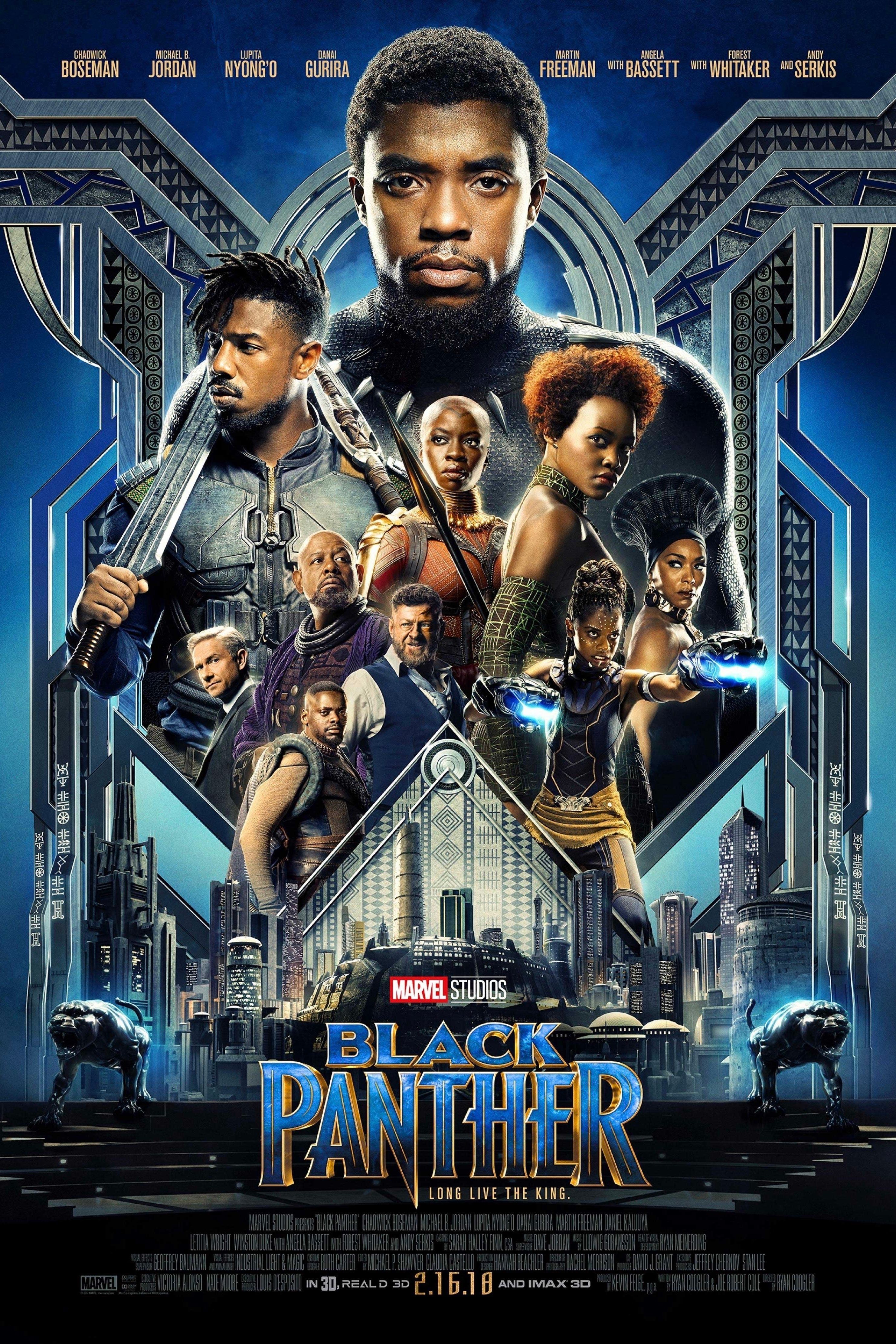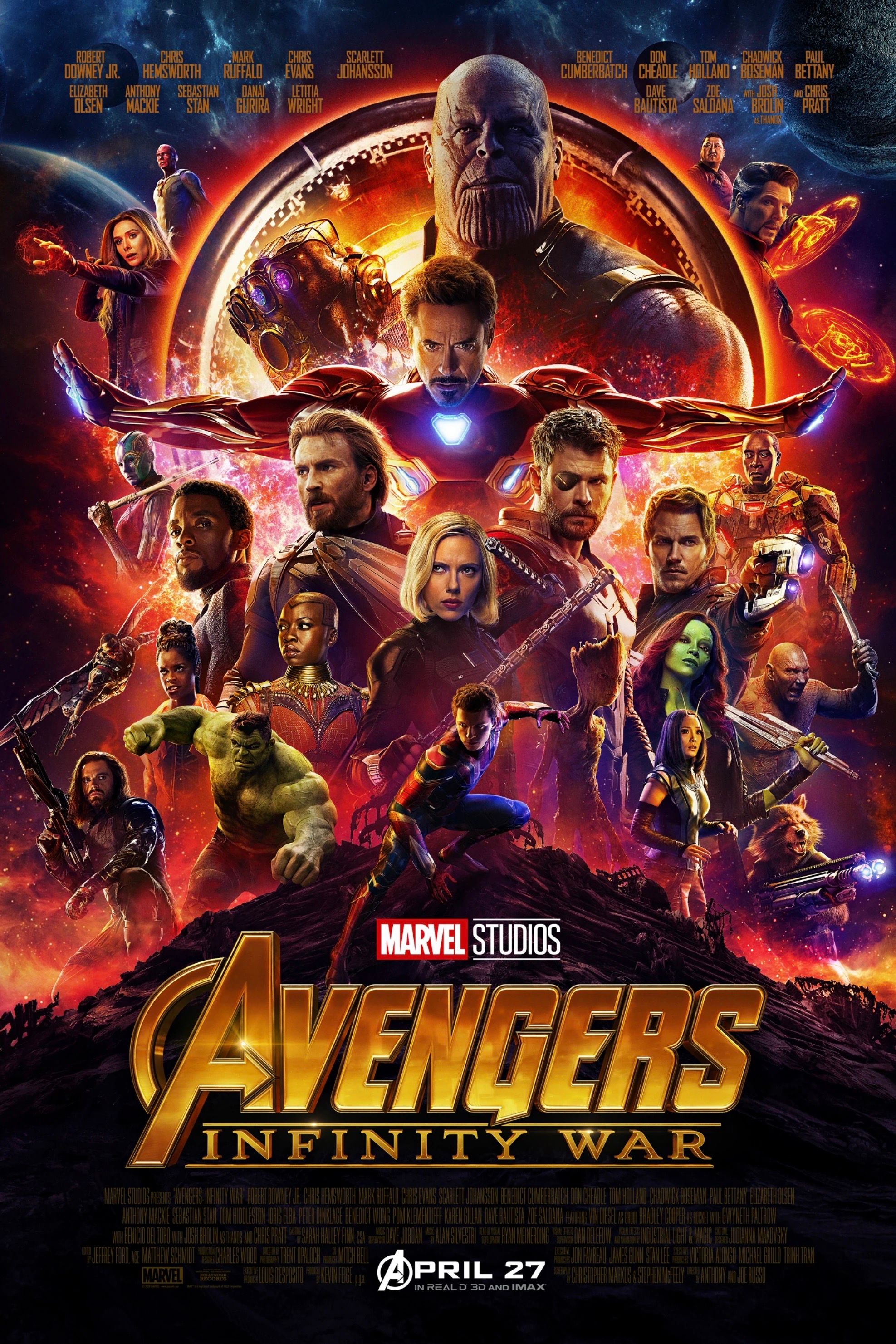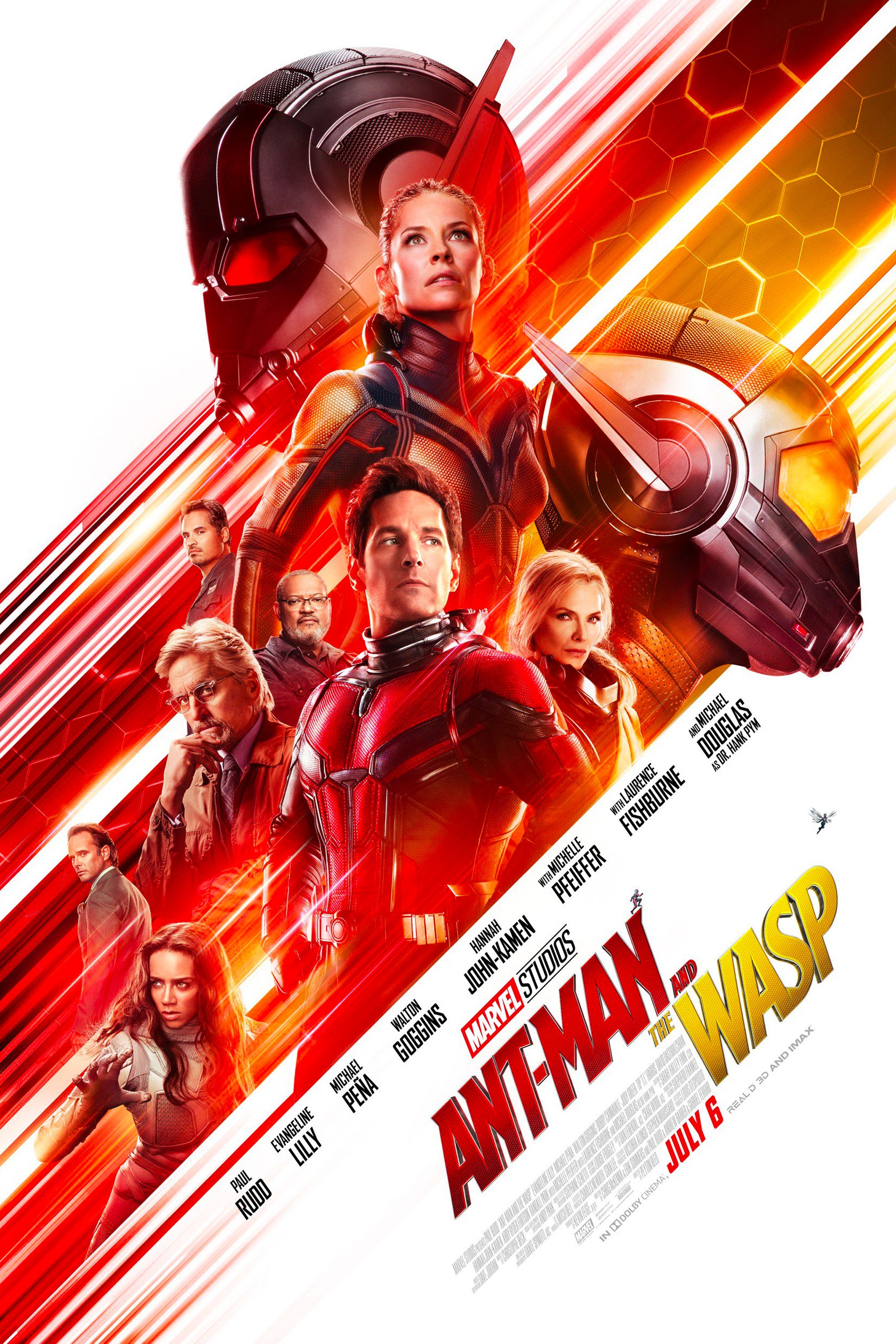Ever since Samuel L. Jackson walked out of the shadows in Iron Man's game-changing post-credits scene, the MCU has been about more that its individual movies. As the Marvel Studios' mantra says, everything is connected. And, at their best, the films manage to both work as solo pieces as well as pay off threads from the previous entries and carefully seed the future. It's a modern form of storytelling and a technique that over the past decade Marvel's evolved in increasingly mature directions.
First it was simply building to team-up The Avengers. Then it was focused having characters a part of a fully functioning world. And in Phase 3 it's reached its peak with crossovers becoming the norm - Captain America: Civil War was Avengers 2.5, Spider-Man: Homecoming will feature Iron Man heavily and Thor: Ragnarok brings together everyone who sat out Cap 3. But as accomplished as it has been overall, this latest turn has led to the question of whether Marvel is no longer capable of telling standalone, self-contained stories. If everything is so built up can the films possibly stand on their own merits? And if they tried to strip things back, could the franchise setup allow it?
Enter Guardians of the Galaxy Vol. 2. The space jackasses were already on the fringes of the MCU due to their almost complete separation from Earth, but their sequel appears explicitly designed to be standalone. There's no Thanos (just a few character-focused references), no obvious dangling threads bar a litany of post-credits scenes and the only film it directly leans on is the original Guardians. It is quite simply the closest to a standalone film since Phase 1. And, in that regard, it doesn't work.
Guardians of the Galaxy Vol. 2's Story Problems
Guardians Vol. 2 is certainly fun and boasts some great moments - it's not the one to break Marvel's unprecedented streak - but almost every plus point is at odds with the fact its removed narrative can't hold them all up. The story is so slight it can be summed up in the length of a tweet: the Guardians meet Ego, Ego's bad, they must stop him. There's a lot of other things going on, sure, yet they're presented in such a random way that most subplots operate entirely independently and have minimal impact on the wider narrative.
This whole story issue is best seen with the character development. Or rather, the lack thereof. Small elements of each hero's personality are sanded down, but nobody undergoes any seismic transformation: the biggest are that Rocket gains an affection for his family and Star-Lord chooses to forsake his immortality, but both those elements - brash antagonism and being half-Celestial - were forcibly introduced in the movie itself; Gamora learns to care for Nebula, although had a similar epiphany at the end of the first film; Drax learned to care for Mantis, but in doing so took a step back (more on that later); and Baby Groot was mere cute/comic relief. The most irreversible change occurred to Yondu, who went from being alive to not being alive, although even that self-compassion arc required some careful stepping around his previous mellowing. The team is of course still enjoyable to be around, but seemingly don't have anywhere else to go.
Without being reductive, Vol. 2 is the most DCEU-esque film Marvel's produced: moments over scenes, an abstract fan-focused experience over narrative coherence, character action over development and theme raising over theme exploration. It doesn't fail completely thanks to all involved knowing the world they're playing in so well, but there's no avoiding they do very little with it.
At the core, it appears that James Gunn has been gifted so much freedom following the original's success that he's steered heavily into the Guardians' inherent weirdness at the expense of plot, and bitten off so much he's not able to tie thematic threads together in a satisfactory way. The entire Ego story is built on convenience - he finds Peter just as the Ayesha threat is being written into a dead end and the sojourn on his planet is bereft of any conflict - while the Ravager side meanders around it until a third act is manufactured from the pair. The result is a film that for all its talk of fathers and Daddy's winds up being a rather empty, aimless experience.
There's a gulf in the film, and the problem seems to be that when stripping out the Marvel formula's requisite connectivity there wasn't enough alternative weight added. Could Vol. 2 have worked better with some more MCU links to beef it up?
Next Page: [valnet-url-page page=2 paginated=0 text='How%20Much%20Should%20Marvel%20Movies%20Connect%20To%20The%20Wider%20Universe%3F']
How Much Should Marvel Movies Connect To The Wider Universe?
The suggestion of having a film more reliant on other films is in some corners taken as being the ultimate representation of how Marvel stands as the harbinger of cinema's doom. If you need extensive pre-reading to enjoy a summer blockbuster, isn't it a glorified TV episode? And, yes, if you're dealing with a Hobbit-level plot structure full of cliffhangers and minimal momentum then it's not going to be great. But leveling it as a major criticism of the MCU seems a bit out of sorts.
Pre-reading is ingrained in film criticism. Great movies are built on what came before and references can act as a stylistic shorthand - just look at the work of Tarantino. In arthouse circles, you're even presumed to have intimacy with a director's previous work to provide incisive comment; that's a good dozen required films. There the reasoning is tonal and thematic rather than necessarily narrative, but the basic practice is the same and to dismiss Marvel for the reason those filmmakers are praised seems rather hypocritical.
Presumed knowledge can be lauded (deservedly) in blockbuster cinema too where it could border on fan service. The end of Rogue One is (rightfully) cited as the film's highlight, specifically Darth Vader's Rebel massacre, but if you take Gareth Edwards' direct prequel on its own then it's a frankly bizarre moment - there's been little tangible establishment of the Force and Vader's role in the Empire is obscenely vague. It presumes a thorough knowledge of the original trilogy, something that works because Edwards understands most viewers will have that.
With those examples in mind, there's nothing intrinsically wrong with a Marvel movie having clear, dominant links the studio's other films. The trick is to know the four-quadrant audience well enough to pitch both the intricate and the broad connections right. Civil War is probably the best example of this. It's at once the third film in the Bucky-focused Captain America trilogy, an establishment of the divided Avengers ahead of Infinity War, an exploration of the collateral damage complaint levelled against the series and the next step of the long-fraught Cap-Iron Man conflict on top of a dozen smaller strands for supporting characters, and all of that is expertly balanced in service of the primary, solo story.
Of course, it can be done wrong too. The Incredible Hulk is full of easter eggs yet they do nothing to improve a middling movie even in retrospect, and Iron Man 2 was hampered by an oppressive amount of Avengers setup that overpowered what was already a rather bland story (something we also saw to a less severe degree in Age of Ultron). However, those misses shouldn't detract from this shared universe factor. It's quite simply a new part of the narrative playset, one that can be overused but pitched right and integrated fully is a unique way for the MCU to accentuate stories.
Before getting back to Guardians, there's also a more cynical reasoning for why this structure helps too. Altogether, not much changes in Marvel movies. Characters grow internally, but often bigger elements remain the same or are otherwise reverted; Tony Stark destroyed his suits, Thor returned to Earth and Cap destroyed S.H.I.L.D. in the last act Iron Man 3, Thor: The Dark World and Captain America: The Winter Soldier respectively, yet Avengers: Age of Ultron managed to effectively undo all three of those resolutions. The MCU's success is, like the comics, now built on familiarity so there's a rather limited opportunity to diverge from the status quo. However, doing this while reminding audiences that there is larger story development creates the sense of things moving forward regardless; connections can inform narrative when there sometimes isn't one. It's not ideal, but for in-the-moment entertainment it works.
Next Page: [valnet-url-page page=3 paginated=0 text='What%20Connections%20Could%20Guardians%202%20Have%20Had%3F']
What Connections Could Guardians 2 Have Had?
So in theory Guardians of the Galaxy Vol. 2 could have totally leaned on its MCU connections more to improve the story. But the question then becomes what should they have been? This isn't a film with a dozen direct lead-ins, and as only the second fully-cosmic entry is very much feeling its own way forward.
The obvious links all circle Infinity War, namely the eponymous Stones and the Mad Titan trying to collect them, Thanos. James Gunn's said that neither would be present for a long time, and there are enough ideas in play to not require them. However, that's not to say they couldn't have been worked in. There's no real need to introduce the last stone (Thor: Ragnarok may have that covered), but the Power Stone from the original Guardians could have been reconstituted. It plays a background role in the film as is, enabling Ego's discovery of his son, but the actual ingot itself and what it and Star-Lord's actions mean for Infinity War are skirted over. This contextual consideration could have given greater universe purpose to the lengthy scenes of Ego's exposition, and could even have led to a unique subplot involving the Ravagers wanting to reclaim their prize from Xandar. The fear was obviously repeating a MacGuffin, but given how it is coming back in Infinity War that's inevitable.
As for Thanos, odds are the reason he's sat this one out is to do with the length of Josh Brolin's contract as much as narrative, but it's definitely a shame; all the MCU characters are on borrowed time as we hurtle towards Infinity War and some specter of that would have elevated the slow middle act. How is a bit trickier, but allusion could have gone a long way. With that in mind, it is remarkable that, while Thanos does play an unseen part in Gamora and Nebula's conflict, the fact he became Drax's new target after Ronan's death is completely ignored; Dave Bautista's literally-minded hulk seems totally over the deaths of his wife and daughter which, just a few months ago in movie time, he was going to finger-to-the-throat Gamora over being associated with.
That element of Drax perhaps best highlights where a greater connection was most needed; it's not to any movie specifically, but the general franchise momentum. As already alluded to, the film is standalone to the point where its characters exist in stasis; almost all development came from reframing events in the original rather than propelling them forward. When you really look at it and what it's doing, Vol. 2 is a holding pen for the Guardians before they are needed in Infinity War.
Conclusion: Or How To Make A Good Standalone Superhero Movie
So perhaps the problem is less Guardians 2 not having direct links to the wider MCU than it not being fully fleshed-out in the first place; Thanos would have been papering over cracks. This is always the danger of shared universe films - offering up a half-story due to an overt focus on the future - and would suggest that Marvel has indeed lost the verve on standalone films (they definitely had it early on, evidenced in the success of Iron Man).
It's definitely possible to make a good standalone superhero movie that connects with audiences in the modern era. The past two years has seen Fox experience immense success with Deadpool and Logan, and while it's easy to point at R-ratings or character recognizability as their biggest strength, what has made them stand out so well is the fact they are good, complete stories. Both riff on being part of the X-Men universe - Deadpool plays it for laughs, while Logan uses it as vague shorthand for Wolverine's closed nature - but are first-and-foremost solo character dissections.
Guardians 2 is mostly inconsequential not just in the MCU framework, but within its own defined story. It's fun, yes, but in not offering anything in the wider story the entire focus is on what it does alone. And when that amounts to giving Chris Pratt superpowers so you take them away again, that's not enough.

